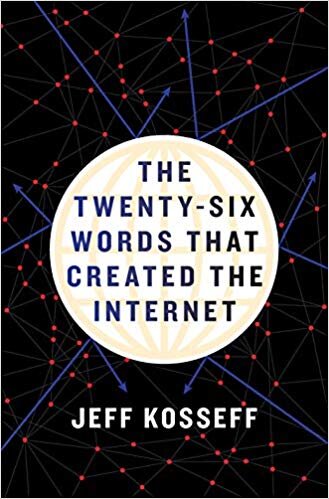“No provider or user of an interactive computer service shall be treated as the publisher or speaker of any information provided by another information content provider” (Section 230 of the Communications Decency Act of 1996).
Those 26 words (and not a member of Congress) invented the internet as we know it. These words protect internet platforms from lawsuits based on user-generated content, allowing them to open their doors to a dizzying variety of sentiment and speech. Absent that sentence, social media platforms would have strong incentives to suppress any speech that might cause them legal woes. Or, in contrast, they might avoid legal liability by not moderating their forums at all, likely rendering them unusable. Jeff Kosseff tells the story of the institutions that flourished as a result of this powerful statute. He introduces us to those who created CDA 230, those who advocated for it, and those who were involved in some of the most prominent cases decided under the law. As section 230 and the platforms it protects face increasing scrutiny, Twenty-Six Words demystifies this little-known yet vital statute.
Please join us for an engaging discussion of a law that will likely shape our politics and policymaking for years to come.

